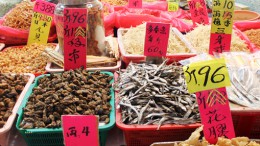Trade as a confidence-building measure in Asia
By Volker Stanzel via Caixin | The world debate may be preoccupied with crises in the Middle East and in eastern Ukraine and with ISIS and fighting Ebola. Yet, tensions in East Asia have not subsided. Even though the region has seen quite a remarkable level of peace since China’s war against Vietnam in 1978-79, there is a new uncertainty.






